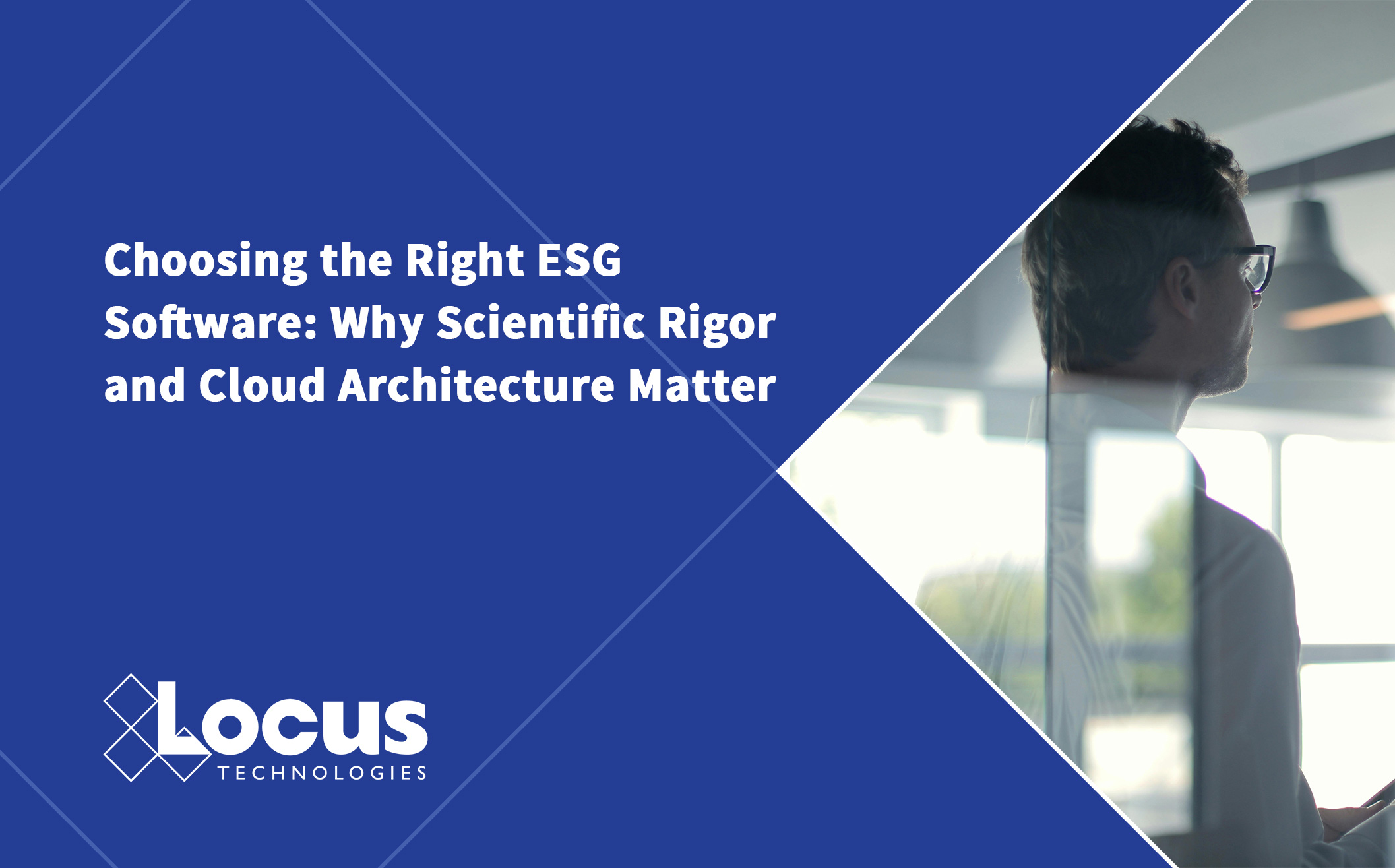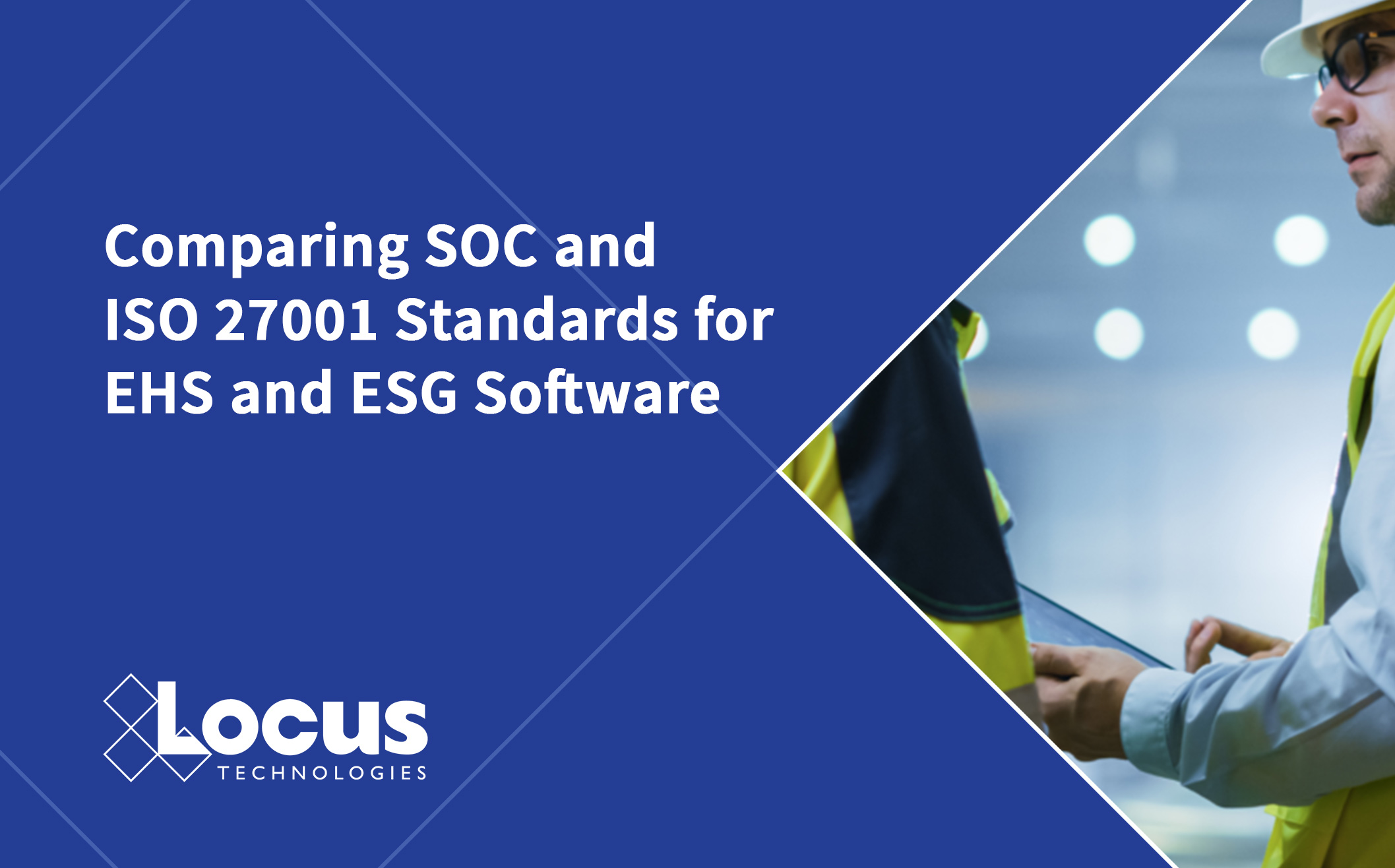Throwback Thursday: How Locus has been Transforming Environmental Data Management for Decades
By Staff Writer

Reading Time: 3 minutes 13 seconds
In the ever-evolving landscape of environmental management, few companies have demonstrated the foresight and innovation of Locus Technologies. For nearly three decades, Locus has been at the forefront of digital transformation in the environmental sector, offering cutting-edge solutions for EHS, ESG, and environmental data management.
A Vision Ahead of Its Time
Founded during the early days of the Internet boom, Locus recognized the potential of web-based technologies to revolutionize how environmental professionals collect, manage, and share data. While many early Internet ventures faltered, Locus invested in building a robust, scalable platform designed specifically for the environmental industry.
Today, this dynamic cloud portal integrates multiple modules and apps that address the full lifecycle of environmental projects, from field data collection to regulatory reporting and stakeholder collaboration.
This retrospective article summarizes several of the company’s earliest breakthroughs – some of which lead to step-change innovation in the years that followed; others that remain defining attributes of Locus software today.
Remote Control and Automation: Efficiency from Afar
One of Locus’s most impactful innovations from the “early days” was its remote control and automation module, which allows environmental engineers to monitor and manage groundwater and wastewater treatment systems remotely. Using Programmable Logic Controllers (PLCs) and Internet-connected sensors, users can:
- Monitor water levels, flow rates, and system pressures.
- Adjust chemical dosing in real time.
- Receive alerts for filter replacements or system anomalies.
- Reduce site visits and operational costs by up to 70%.
This technology has proven especially valuable in remote or hard-to-access locations, such as Union Pacific Railroad sites in the Sierra Nevada mountains, where traditional monitoring was costly and inefficient. Today, automation and Internet of Things connections remain key differentiators for Locus Technologies.
EIM™: Environmental Information Management Reimagined
Locus EIM is a cloud-based database that centralizes environmental data, making it accessible to authorized users anywhere with an Internet connection. Unlike traditional client-server systems that proliferated in the early 2000s, EIM eliminated the need for specialized software installations and data transfers between consultants. Locus EIM remains the de facto standard for collecting and managing the most complex analytical data.
Key features include:
- Customizable data entry forms for sampling and field measurements.
- Real-time data uploads and validation.
- Statistical analysis and trend visualization.
- Automated report generation and Excel exports.
This centralized approach reduces redundancy, improves data integrity, and accelerates decision-making across teams and projects.
Wireless Innovation: eWell and Beyond
Locus also pioneered wireless field data collection with its eWell application decades ago (now “Locus Mobile”). This technical advancement empowered field technicians to record water levels, access historical data, and receive alerts for anomalous readings—all from a handheld device. The original version was built on the Palm® operating system, which was the leading mobile device of the day. (Locus Mobile continually evolves to support modern market leaders like Apple iOS.)
Locus Mobile further enhances field operations by guiding technicians on sampling protocols, container requirements, and preservation methods. Field data is instantly uploaded to the central EIM database, streamlining QA/QC and reducing transcription errors.
Collaboration and Document Management
Environmental projects often involve a diverse array of stakeholders—consultants, regulators, contractors, and clients. One of the earliest enhancements of Locus software was its document management and communication module. The module continues to ensure seamless collaboration by:
- Allowing secure file sharing and version control.
- Supporting threaded discussions and decision tracking.
- Automating notifications and user access management.
This module reduces project delays, improves transparency, and supports informed decision-making throughout the project lifecycle. Through the Big Data explosion and beyond, these capabilities became a core element of Locus value.
Expanding Horizons: ESG and Compliance
After leading the charge in environmental information management for more than a decade, Locus expanded its platform to support real-time air monitoring, drinking water quality, and wastewater compliance about 15 years ago. These enhancements align with federal regulations like the Clean Water Act, Clean Air Act, and Safe Drinking Water Act, and position Locus as a key player in ESG reporting and sustainability initiatives.
The cloud-native model ensures scalability across industries—from energy and chemicals to mining and utilities—making Locus a versatile solution for environmental professionals worldwide.
A Legacy of Innovation
Locus Technologies has consistently demonstrated that the Internet is more than a tool for communication; it’s a powerful engine for environmental progress. By combining technical expertise with visionary thinking with a cloud-native EIM, EHS, and ESG platform, Locus has empowered organizations to manage data more effectively, reduce operational costs, and meet regulatory demands with confidence.
For environmental professionals seeking a proven, future-proof platform, Locus offers a compelling solution built on decades of innovation and industry insight.
Locus is the only self-funded water, air, soil, biological, energy, and waste EHS software company that is still owned and managed by its founder. The brightest minds in environmental science, embodied carbon, CO2 emissions, refrigerants, and PFAS hang their hats at Locus, and they’ve helped us to become a market leader in EHS software. Every client-facing employee at Locus has an advanced degree in science or professional EHS experience, and they incubate new ideas every day – such as how machine learning, AI, blockchain, and the Internet of Things will up the ante for EHS software, ESG, and sustainability.



